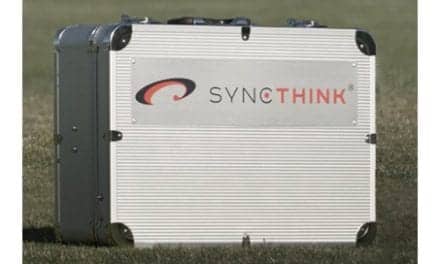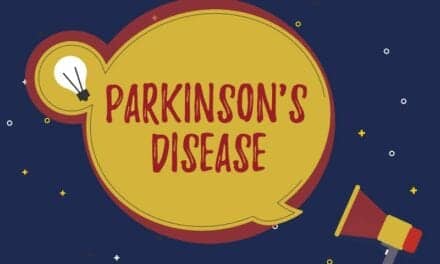PHOTO CAPTION: A research scientist (left) supervises a participant with MS during a computer-based cognitive rehabilitation training session at Kessler Foundation. (Photo courtesy of Kessler Foundation/Jody Banks)
In a review of recent literature, a team of researchers from Kessler Foundation suggest that cognitive rehabilitation programs are efficacious in treating multiple sclerosis-related cognitive dysfunction, and urge clinicians to consider this low-cost, low-risk, yet effective treatment approach for their patients.
Their study is published in the Journal of Neurology.
Cognitive impairment is a common and debilitating symptom of multiple sclerosis (MS). Symptoms vary among individuals, but often include slow information processing speed and inefficient learning and memory. Such deficits can be extremely disruptive to everyday life, affecting a person’s ability to manage their disease, complete commonplace errands, and maintain employment. Unfortunately, there is no gold-standard treatment for MS-related cognitive impairment, as medications approved to treat MS have shown limited efficacy in treating cognitive dysfunction.
One promising treatment approach is cognitive rehabilitation, in which behavioral interventions are used to improve cognition. There are two general approaches to cognitive rehabilitation: restorative and compensatory. Restorative cognitive rehabilitation (also known as cognitive remediation) aims to reinforce, strengthen, and recover cognitive skills, typically through repetitive cognitive exercises using computer-assisted paradigms.
In contrast, compensatory cognitive rehabilitation does not aim to restore lost cognitive skills. Rather, it helps patients compensate for their cognitive difficulties using various strategies such as visualization and reminders, a media release from Kessler Foundation explains.
Current Research
In their review, the Kessler team summarized the current state of cognitive rehabilitation research, both restorative and compensatory, among people with MS. Based on available evidence, they suggest that cognitive rehabilitation is an effective approach to improving MS-related cognitive impairment, as demonstrated by 81 published studies, most of which were published since 2011.
“Cognitive rehabilitation should be part of a comprehensive treatment plan for people with MS who experience cognitive deficits.
“Given the lack of approved pharmacological treatments, behavioral approaches are the best treatment options that clinicians can currently offer. Patients generally report enjoying treatment, which would be conducive to compliance. Furthermore, computer-based treatments can be easily delivered at home, making this low-cost effective intervention more convenient and accessible to individuals in need.”
— co-author John DeLuca, PhD, Senior Vice President for Research and Training at Kessler Foundation
Related Content:
Can MS Drugs Treat its Cognitive Symptoms?
Multiple Sclerosis Treatment: Kessler Researchers Predict the Future
Why Do Black People with MS Seem to Have More Disability?





